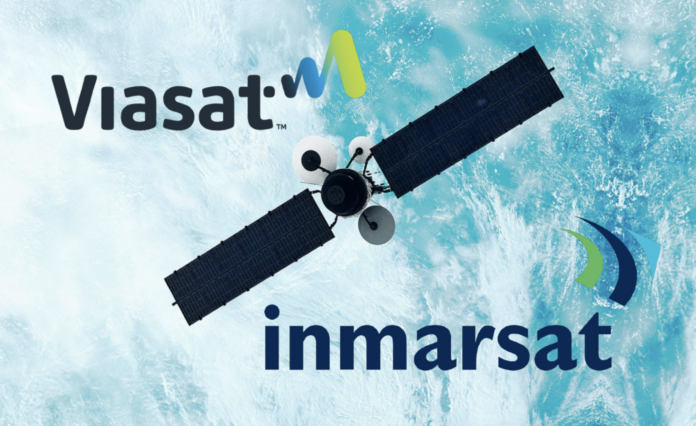US satellite broadband provider Viasat’s proposed acquisition of UK-based counterpart Inmarsat for $7.3 billion is in question following a review by the UK’s Competition and Markets Authority (CMA) that concludes a merger between the two will “lead to airlines facing higher prices and worse quality on-board Wi-Fi”.
The proposed deal – which would see the combined company integrate their spectrum, satellite, and terrestrial assets as a “global high-capacity hybrid space and terrestrial network”, supplying satellite-based broadband and narrowband services to commercial and government sectors – was approved by the UK government last month.
The deal had won favour on the grounds Viasat had committed to expand highly skilled jobs in key areas and raised UK research and development spending by 30 percent. But the CMA has taken a dimmer view, on the grounds of already-limited competition around supply of onboard Wi-Di for passenger use, where the two are key players.
It noted new players, such as Starlink, OneWeb, and Telesat, are targeting the aviation sector, but said it is “one of the most difficult industries… to enter”, and target “there is significant uncertainty about when – if at all – these suppliers would be in a position to compete effectively with Viasat and Inmarsat”.
Colin Raftery, Senior director at CMA, said: “This is an evolving market, but the merging companies are currently 2 of the key players – and it remains uncertain whether the next generation of satellite operators will be able to compete against them effectively. Ultimately, airlines could be faced with a worse deal because of this merger, which could have knock-on effects for UK consumers as in-flight connectivity becomes more widespread.”
The firms have five working days (until October 11) to submit proposals to address the CMA’s concerns. The CMA then has a further five working days to consider whether to accept any offer instead of referring the case for an in-depth ‘phase two’ (Phase 2) investigation.
Viasat and Inmarsat released a joint statement that said they remain “confident their combination benefits consumers” and will demonstrate to the CMSA “how their planned transaction will benefit airline, passenger, and enterprise users of in-flight connectivity (IFC).
Mark Dankberg, chief executive at Viasat, said: “The decision to proceed to a Phase 2 review is not unexpected, even though IFC represents less than 10 percent of the revenues of the combined company. This is still a nascent, dynamic, and rapidly evolving business, with existing providers and extremely well-financed new entrants bringing new technologies and new business models to increase adoption among airlines, passengers, and aircraft types.”
Rajeev Suri, chief executive at Inmarsat, said: “Strong players are already offering in-flight connectivity and the new LEO players – which already operate over half the satellite broadband capacity available globally, are aggressively and successfully targeting aviation. We expect competition to be robust in the years ahead and, together, Viasat and Inmarsat will be well-placed to invest in the technologies needed to meet the growing needs of aviation customers.”

